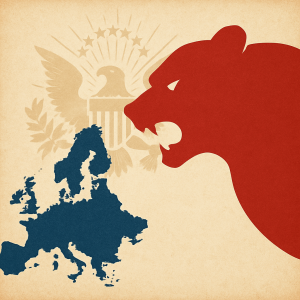Two things struck me in Brussels and in Strasbourg. The first is the Americanisation of the European political scene; the second is the sudden breakthrough of French ideas about Europe.
It was not such a long time ago that France was mocked by all her partners, or by almost all of them. The “grand nation”, the Germans said ironically, and France’s appeals for the creation of a European defence were perceived as the consequence of an obsessive anti-Americanism. Her mantras about “l’Europe puissance”, this ambition to turn the Union into an international player on equal footing with the United States, was nothing else, they grumbled, but the megalomaniac nostalgia of an old country for her lost greatness. As for the pleas of all the French presidents for a common industrial policy, they were regarded as a sign of Colbertism that had been taken over by the liberal times whose success only France did not see.
Jacques Delors or not, for fifty years it was tough to be French in this European unity, even though France invented it. Then along came Mr Trump.
George Bush and Barack Obama have foreshadowed it, but this time the penny dropped for Europe. America does not want to be the global policeman anymore. She wants to defend her own interests and her place as the number one economic power in the world. She does not have any allies left that count, either in Europe or in the Middle East. The only thing on America’s mind is not letting China overtake her, and therefore there is no more American umbrella over a Europe that borders Mr Putin’s Russia in the East, and the chaos of the Middle East and Africa in the South.
So, in a few months’ time, Europe woke up and realised that she needs to take up the challenge.
Europe has not become French, as she had been German in these last fifteen years. She has not converted yet to the idea of a common defence, of a political Europe and of common investments into the industries of the future, but these three ideas do not seem so off the wall any more, either. People talk about them. They examine them. Politically speaking, “French” is spoken again all along the corridors of the European Parliament, because everyone understands very well, even in Warsaw, in the most atlanticist of European capitals, that the Union cannot stay without defence, that we must have a foreign policy that guarantees our protection and that we cannot miss any more industrial revolutions now that the American president has made Europe an economic rival that has to be brought into line.
This change of atmosphere is all the more spectacular because the climate challenge puts back the question of power and public policies into the heart of the debate, because the need for a political Europe seems to be even stronger and because the drop in international commerce made the German economy suffer so much that the words “fiscal stimulus” are not taboo in Berlin any more.
Everything is changing. Everything has already changed in the Union and, at the same time, a bipartisan approach, not unlike that in the United States, is taking shape in the European Parliament. We are not there yet, either, we are even further away from it than we are from the French ideas, but the trend is visible, because beyond the too many political groups and their genuine disagreements, two large blocks seem to be in the making. From the utopian left to the reformist centre, including the social democrats and Greens, a democratic strain appears regularly around the questions of defending freedom and human rights, while walkways and sometimes even bridges open up between certain parts of the new extreme right and whole sections of the conservative Peoples’ Party, that holds the majority. The boundary is not clear-cut. On economic questions, things are much more complex and are rapidly changing because Keynes is making a return across the board, but there is a republican party and a democratic one with a clear affinity in their fashion choices, in their bar companies, and in how they tame their beards and hair.
Those who have participated at Democratic and Republican conventions will recognise the social and cultural traits of the two American parties in Brussels, including the shift of the Republicans to the right. On the way towards claiming its own political weight, the European Union takes after the American political system and there maybe is a logic to this growing resemblance between the United States of Europe and of America.



